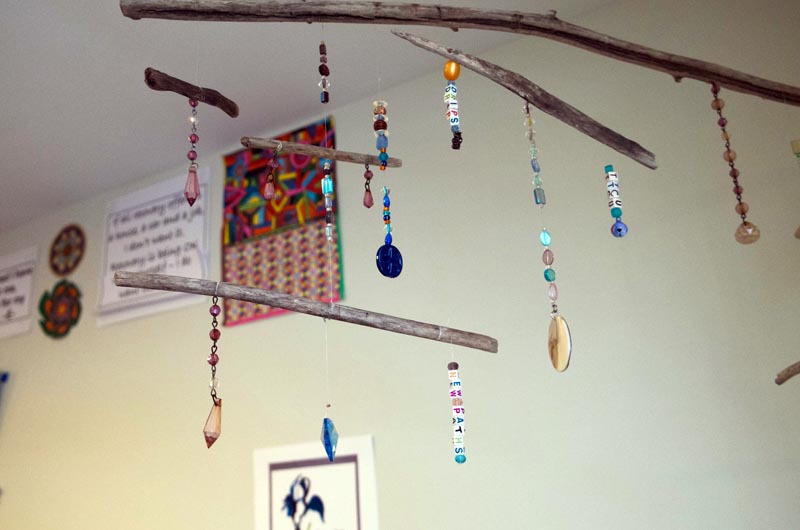A program that has served more than 350 Islanders struggling with addiction is facing a dire funding shortfall.
The Island’s only intensive outpatient substance abuse program, New Paths Recovery, was inaugurated with a five-year grant from the Martha’s Vineyard Hospital in the summer of 2010. But in the years since, the program has grown and is now operating at a loss of about $64,000.
Next January, it will lose an additional $51,000 when the grant expires.
Before the inception of New Paths as a group-centered outpatient program based at Martha’s Vineyard Community Services, those seeking that level of care had to travel off-Island.
Change came following a multi-year review of mental health and substance abuse services in which community members worked together to identify significant gaps in Island substance abuse supports.
“This program has definitely begun to meet an enormous need on the Island,” said Patricia Moore, a trained mediator who facilitated talks that led to the creation of New Paths.
Ken Keohane, a recovering alcoholic and addict with more than 20 years sober, said New Paths is a critical part of the Vineyard recovery process. He said recovering addicts need all the support they can get.
“In my experience, there’s a lot of bolts in recovery, and there is a different wrench for every bolt,” he said. “Alcoholics Anonymous works for some of us, Narcotics Anonymous works for some of us, religion works for some of us, Buddhism works for some of us, and New Paths definitely works for those for whom the other wrenches didn’t work. We need all the help we can get.” Still, the program’s financial viability has been a topic of discussion for more than six months, as members of the board of directors have met to discuss the program’s financial future. As participation in the program has grown, insurance reimbursements have become more stringent. In addition, many clients are uninsured.
“We are working hard to figure an alternative funding stream for it,” said Juliette Fay, executive director of Community Services.
The group met initially with the goal of replacing the $51,000 hospital grant, which covers about a fourth of the program’s total costs. But discussions have since been extended to include the possibility of developing a care continuum of substance abuse services, including a detoxification unit.
“Unfortunately, continuing the services we have doesn’t address the need,” board member Robert E. Egerton Jr. said last week.
The agency has considered all manner of funding sources, including private donations, grant and town funding, and working to ensure more comprehensive insurance reimbursements.
With less than 10 months before the grant expires, no decisions have been made as to the target or the amount of the funding petition.
There are currently 25 people in the regular New Paths program and 15 in the step-down program, a group for those in a more advanced stage of recovery. Most clients are Islanders in their 30s to 50s, but some are younger and others a little older.
Many insurers will not pay for more than four weeks of treatment, yet clients are invited to stay longer to raise their chances of success. No one is turned away for financial reasons.
To obtain a certificate of completion, clients must attend group meetings three times a week for a minimum of four weeks. The program uses a cognitive behavioral therapy model with a mindfulness component. The name, New Paths, was chosen for its symbolism, said social worker and founding program coordinator Jillianne De La Hunt. As the name suggests, those in the program are working to forge a new life path that leads them towards recovery. They are also building new neural pathways in their brains to reduce their chemical dependence, Ms. De La Hunt said.
A former client referred to addiction as a path that has grassed over but can become a superhighway as soon as relapse strikes, she said.
“This is a chronic illness and it needs the same amount of management as diabetes or hypertension,” she said.
Peer leaders like Mr. Keohane sit in on the groups and share their recovery experiences. They are a source of wisdom, strength and hope for those working through early recovery, Ms. De La Hunt said.
“I have found as part of my recovery, the only way to keep it, is to give it back,” Mr. Keohane said.
Clients at New Paths do not submit to drug testing due to a lack of resources, however, they are sent home if found to be impaired.
Since the program’s inception, more than 350 clients have passed through; some under a court mandate, others of their own volition or at the suggestion of a family member or friend.
Ms. De La Hunt estimates that one-third of people who enroll successfully complete the program.
“The number one challenge is relapse,” Ms. De La Hunt said. “Most people who come into this program are still in early recovery.”
But even when clients don’t complete the program, their time spent within it is not wasted, she said.
“I am of the belief that anything anybody does to interrupt that addiction pattern will help them,” she said.
Even getting in the door is a victory for many, Ms. De La Hunt said.
“I really believe it takes real courage to make that phone call,” she said.
When clients do complete the program, their eyes are brighter and they begin to look other people in the eye. The program organizes a ceremony to recognize the achievement.
“It’s really wonderful to see . . . it helps keep the faith,” she said.








Comments (2)
Comments
Comment policy »